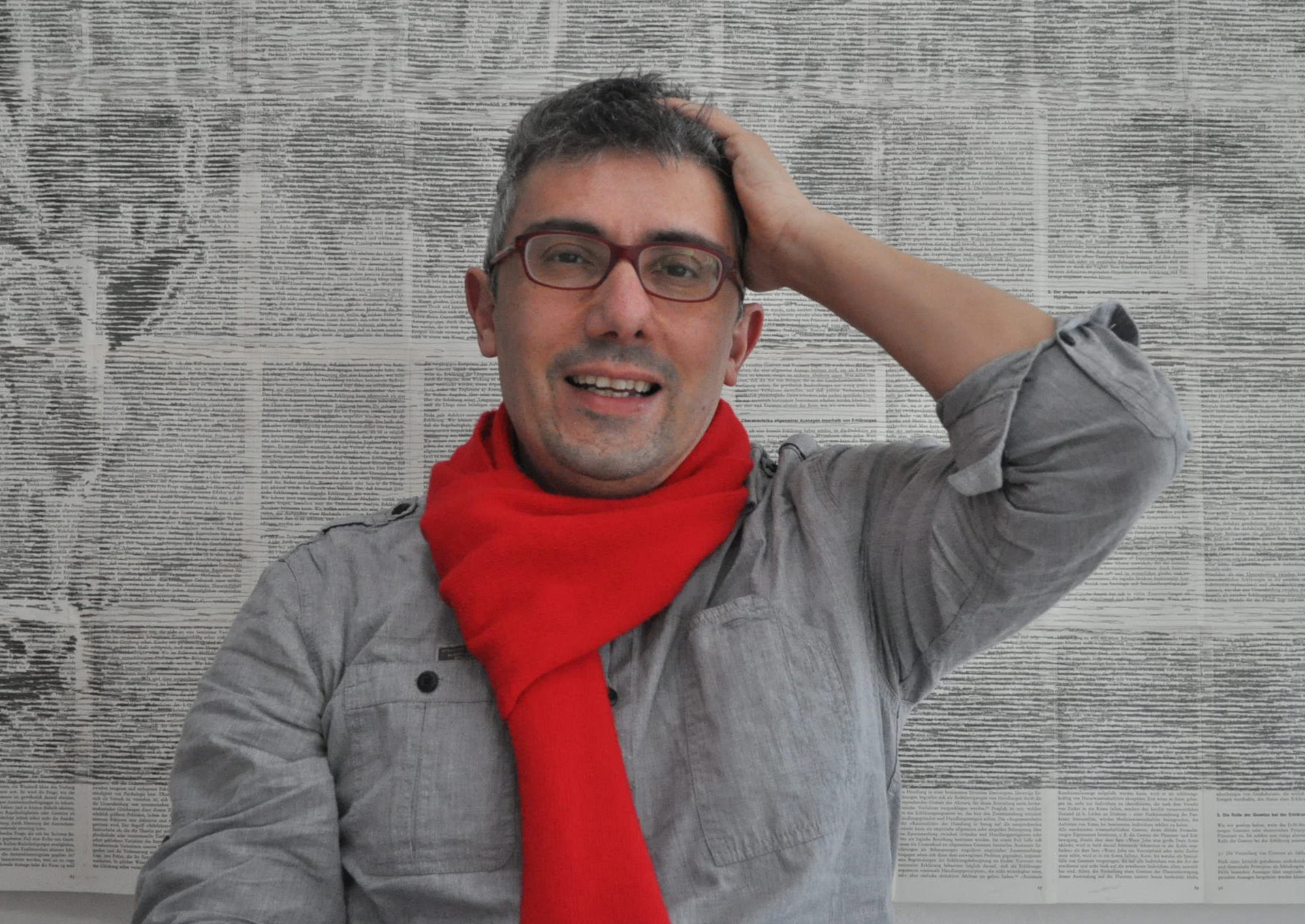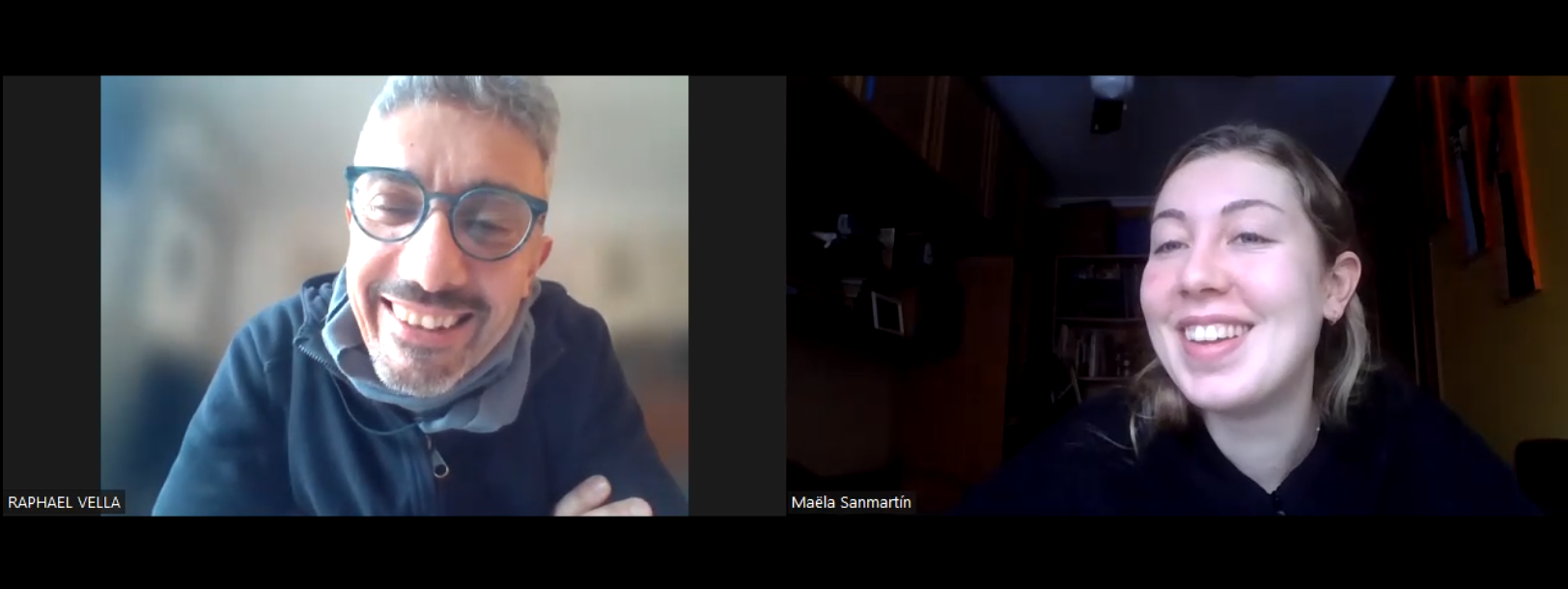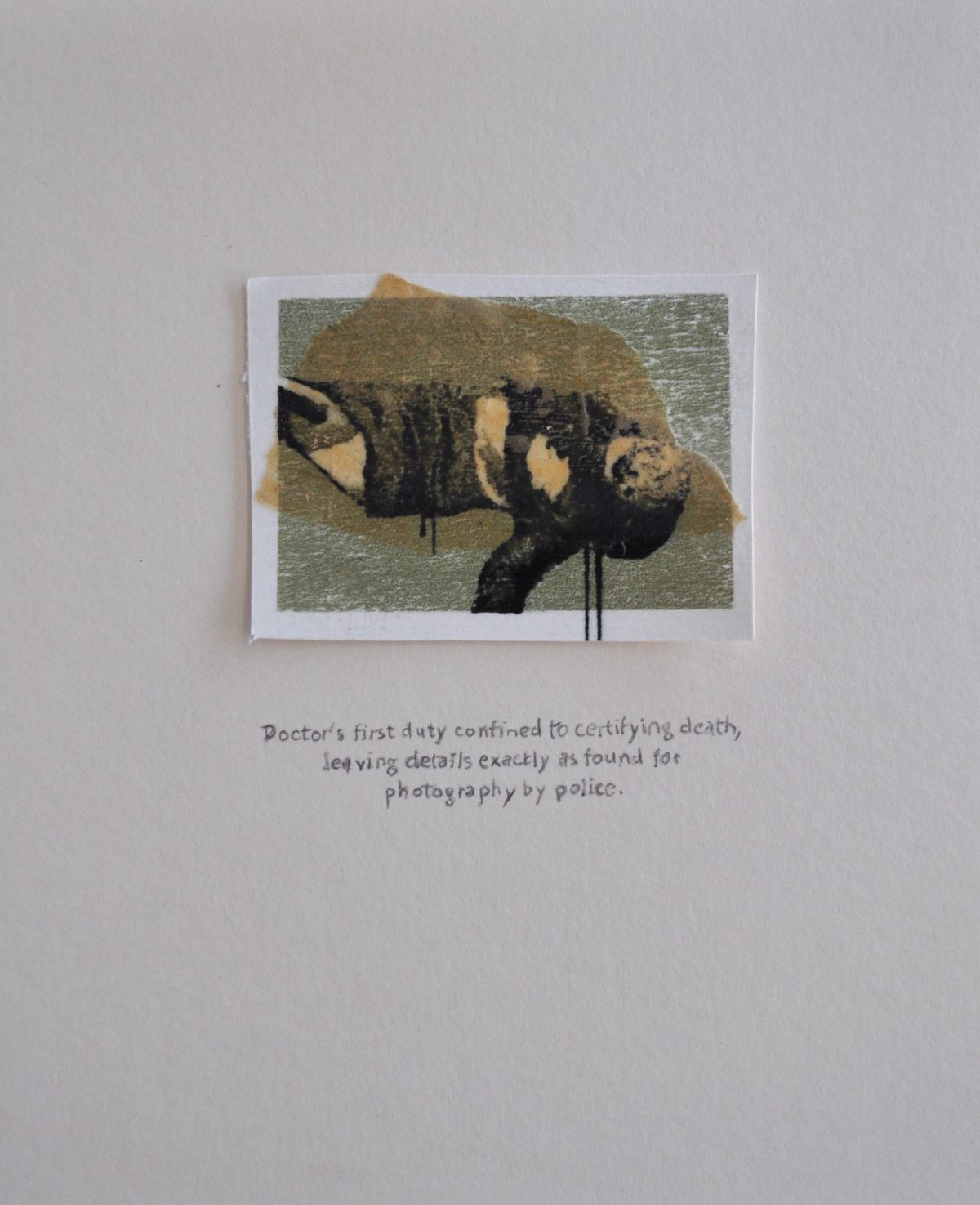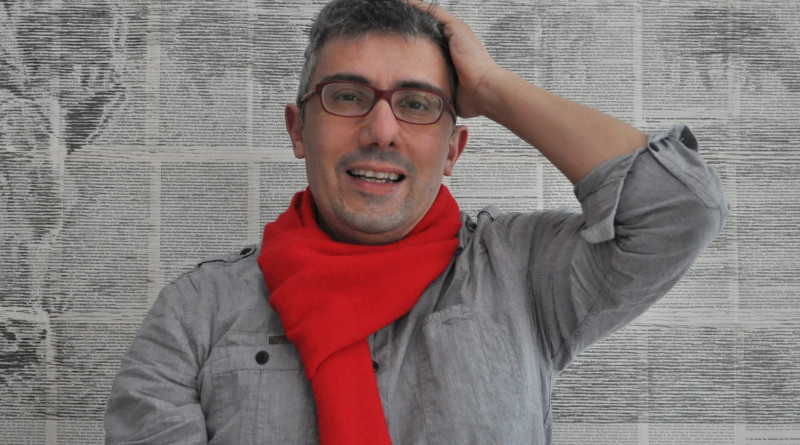Raphael Vella – Maltese Artist, Teacher and Curator

Raphael Vella is an artist, curator and teacher based in Malta. He did a Bachelor’s in Education (1991) and a Master’s in Arts (1997) at the University of Malta and concluded a PhD in Fine Arts at the University of London in 2006. Since 2009, Vella has been curating exhibitions and creating diverse cultural initiatives such as the Valletta International Visual Arts festival (VIVA). From 2000, he has enjoyed several artist residencies around the world, and his artworks have been exhibited in many international contexts. Currently, he is also an Associate Professor at the University of Malta and has worked extensively to promote the work of emerging Maltese artists (1).
Raphael Vella participated in the Mahalla Festival – Murmuration– 2021 in Istanbul with the installation and the stop motion animation Antibody. His new work News from Nowhere was on display in Japan 2022 and will be on display in Malta at Valletta Contemporary this year, curated by Maren Richter.
INTERVIEW with Raphael Vella
By Maëla Sanmartín

Did you always want to be an artist?
I think so. When I was a kid, both of my parents were teachers, so there were lots of books at home. Neither of them was an artist or had any kind of inclination towards art, so it didn’t really come from them. But I remember the house was full of books and paper. And I would make lots of drawings on these, any piece of paper I found around the house. In the beginning they thought I was just scribbling. But then they realized it was more than that, because it was an obsession. They started sending me to lessons, and that’s how it started.
Would you say that art is political?
I think it’s important that art has to be political. In my case, I’ve always been interested in the relationship between art and politics. Also, the more I matured, the more I understood how important it is to think about the relationship between art and life. I never liked the idea that art is simply a case of letting your imagination run loose. Of course, I like creative ideas in art, and I tell my students it’s really important to be creative. But I’ve always thought as well that it’s important to ground that creativity in real life and social issues.
You’ve worked with diverse topics like migrations, gender, medicine, history… Which one would you say is the topic that touches you the most?
I’m interested very much in the relationship between medical, political and educational practices. In a sense, all those different disciplines try to improve our lives. And my question is: can we actually do anything to generate a change? And do artists need to be given this kind of extra responsibility? Are artists like teachers, or are they expected to be like doctors? If you go to a doctor because you’re sick, you expect to get better. Do you go to an artist for the same reason? This is a question I like to ask myself all the time, and it’s at the bottom of what makes me move forward as an artist. Thinking about the relationship between art and healing.

Raphael Vella. Medical School, 2012.
You have a quote on your website: “no matter how much we attempt to destroy or forget our past, it returns to haunt us”. What relationship do you have with the past? How does it influence your art?
All art or literature is a kind of reaction to what has already come before us. So you can’t really ignore the past or erase it. In my work, I have sometimes tried to use processes of erasure. For example, using pages from books and crossing them out. When doing this, the text is still there, it’s still visible. Even if it’s not as legible as it was before. And this is a way to show that no matter how much you try to forget your past, your past is still going to haunt you and it’s still going to be there, all the time.
What are your sources of inspiration?
Current events sometimes inspire me. But also the future, the unknown. And the fact that the future is a bit shaky, a bit scary, because you’re never sure what’s going to happen. Now, with so many issues related to climate change and so on, the future doesn’t look great for future generations. And that is something which I think about quite often. I also usually think about any situation in which we communicate with others, what I call dialogic situations. Situations which make me create some kind of dialogue with other people, or assemblies of people coming together to try in some way to improve their lives.
Raphael Vella. Antibody, Installation and Stop Motion Animation in Istanbul 2021
Do you believe in something like a revolution, with art involved?
The easy answer to that question is no. Nobody’s going to expect art to create some kind of political revolution that will change the world, in the same way that the French Revolution changed Europe, for example. So, the answer is no. But I do believe that art and other aspects of art, for example in educational settings (not only with children, but also with adults) can be part of a slower process. However, very often it’s so invisible. But just because you can’t see it, it doesn’t mean it’s not there.
Which one do you prefer: teaching or doing art?
That’s a difficult question. Well, I think in my heart I prefer art. You know, I’ve been teaching for over 30 years, and I think I’ve given students enough. Don’t get me wrong, I love teaching, but it’s something you must do in a way for a living. If I would have tried to survive only through my art, I would have probably died of hunger ages ago (he laughs).
What do you think is the power of teaching and the power of art?
The power of art is, I think, the power of empathy. Connecting with people you don’t even know. The power of teaching is the ability to connect with people you do know. And this is a beautiful process which grows over time.
Does art have a meaning for you?
Yes. I mean, for me that question is the same thing as if you were asking me “does life have a meaning for you“?
Raphael Vella. News from Nowhere, Stop Motion Animation 2022
Is your future predictable or unpredictable?
I don’t know if I’m going to be alive in three years, so I don’t plan it too much, you know? But to some extent, I’m kind of in control of my future. I tend to plan projects one or two years ahead. But not much longer than that, because then it becomes too far in the future. And then, in your daily life I get these moments of unpredictability. For example, getting invitations, being part of exhibitions or projects. So I never know, perhaps next week I will get an invitation to be part of a project, and it happens. So yeah, to some extent I can say my future is predictable. Luckily, it’s also unpredictable, because even when you’re doing your own art, you’re never a hundred percent sure what’s going to happen.
We did an interview with Aaron Bezzina on InEnArt, who is also an artist living in Malta. I wonder if you, artists in Malta, are in contact or create cooperation networks.
Aaron was my student, for like a year or so. And I know him from other things, because I curated two or three exhibitions in which he was involved. At that time, he was an emerging artist. Now he’s more established. But your question is perhaps more important than you can imagine, because here in Malta (despite our small size) there is not much collaboration, unfortunately. Around 18/19 years ago, I coordinated a group of contemporary artists. There were around 10 of us, but it lasted perhaps three years, not more. It was difficult to survive for longer. So it’s not easy to collaborate, but I don’t feel guilty about not having offered a hand.
What can you tell us about your latest work, News from Nowhere?
It’s called News from Nowhere because it was inspired by a novel written by the socialist William Morris in 1890. He really had this kind of utopian belief that art can change society, and he believed it could change society through work. If all work could become like a form of art, then you would enjoy going to work. He was very much inspired by Marx’s ideas, and he wrote this novel where the main character basically wakes up in the morning and finds himself in a completely unknown world in the future. And this world has been transformed into a kind of communist paradise where everyone loves going to work and he’s walking around the streets. But he totally doesn’t recognize the place or the people, because everyone seems happy.
So what I did in my animation is that I took the basic structure of the novel, but then turned it completely upside down. It’s only a five-minute animation (but it has about a thousand frames) where you get someone waking up, going out and finding a completely transformed world. But it’s a world on fire. The whole place is literally on fire, and there are explosions everywhere. Later, the man just returns home completely shocked. He looks at a plant, waters it and that’s the end of the animation. So, even if the world around us is changing (maybe for the worse) there is still hope and the possibility of dreaming of change.
- Raphael Vella (n.d.). raphaelvella.com. Available at: http://raphaelvella.com/

